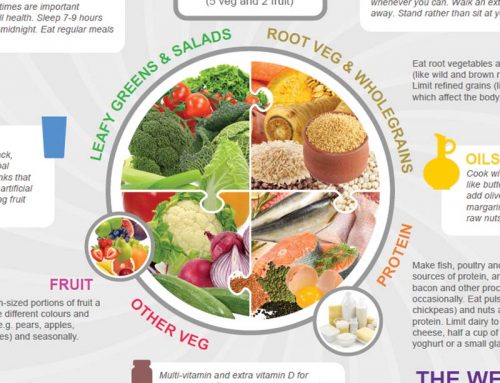Every year, without fail, a new fad diet creates a media storm and every year I put my head in my hands and wonder are we ever going to learn. Without question, 2013 has been the year of the ‘fasting diet’ and it doesn’t seem to be going anywhere anytime soon. Everyone’s still talking about ‘intermittent fasting’, but is it really the key to staying slim and living a long and healthy life?
So, what exactly is intermittent fasting (IF) I hear you ask. In simple terms, it’s a system of eating that alternates between periods of fasting and non-fasting in order to promote fat loss and boost overall health and longevity.
Variations
There are a number of different approaches to applying IF. Some involve 24 hour fasts one to two times per week (the most popular form of this is known as the 5:2 diet) while others suggest simply fasting for 14-16 hours a day which includes sleeping hours (known as daily intermittent fasting). Other forms require fasting all day and eating one, large meal at night (known as the ‘warrior diet’). Ultimately however, the goals and results of these programs are similar.
Where did it originate?
Fasting is nothing new in that it’s been an important part of religious traditions for centuries. However, the mainstream rush of interest in ‘Intermittent fasting’ began after a BBC Horizon programme called ‘Eat, Fast and Live Longer’ was broadcast last year, and since then, there has been a flurry of newspaper articles and books being published on the subjects, each one trying to put it’s own unique stamp and selling point on it.
Why bother?
Whilst intermittent fasting may be all the rage, research on the long term health effects is still in its infancy and much of the research to date has been focused on animals. As such, there is still a lot of scepticism out there amongst health professionals, my self included. As a nutritionist, I am always interested in and open to the latest scientific research and admittedly, the research on intermittent fasting thus far seems to be favourable. However, its very principle still goes against the grain of traditional healthy eating, so, the jury is still out as far as I’m concerned.
Horses for courses
However, there really is no one size fits all, no magic pill and no one answer when it comes to health and nutrition. So, it’s a matter of educating yourself, experimenting and determining the best path for your own unique needs. Below is my personal and professional opinion on what I believe to be the potential pro’s and con’s of this form of dieting to help you decide yourself.
Potential Positives
There is evidence suggesting that intermittent fasting may have beneficial effects on the health and longevity of animals (including humans) that are similar to the effects of caloric restriction. There is currently no consensus as to the degree to which this is simply due to fasting or due to an often concomitant overall decrease in calories, but, recent studies have shown support for the former.
Below is a list of potential benefits associated with intermittent fasting (bear in mind that many of these benefits have not been scientifically proven in humans):
- Increased fatty acid oxidation – which means the body burns more fat as energy, leading to fast weight loss
- Increased cell resistance which slows down the ageing process and improves immunity.
- Increased insulin sensitivity which can improve glucose metabolism and reduce diabetes risk.
- Reduced inflammation which means faster body healing, repair, and recovery.
- Reduced cancer cell proliferation rate which reduces overall cancer risk.
- Reduced cognitive decline for patients with Alzheimer’s & Parkinson’s disease.
- Reduced incidence of heart disease
Potential Negatives
- Most people are already lacking in important nutrients and vitamins. Skipping meals could perpetuate this deficit further. With eating restricted to fewer hours a day, our window to consume many nutrient dense meals shrinks.
- Fasting can cause us to ignore our bodies’ natural communication system – Listening to your hunger cues is part of the body’s natural intelligence system that maintains health and wellbeing.
- Fasting is anti-metabolic and could harm thyroid health. Fasting stimulates the use of glycogen (stored sugar in the liver) for energy. Once glycogen stores are depleted, tissue breakdown begins. This process releases amino acids that are anti-metabolic to our thyroid.
- We already do a form of intermittent fasting every night when we go to bed and then ‘break- the- fast’ with breakfast in the morning.
- Fasting can increase stress hormones in the body – once liver glycogen is depleted, adrenaline and cortisol are released to stimulate the breakdown of tissue to provide fuel.
- Intermittent fasting (IF) is not an appropriate diet for all stages of life and certainly not suitable for teenagers, pregnant women or those with any blood sugar issues.
- Intermittent fasting places more emphasis on ‘when’ you eat as opposed to ‘what’ you eat. Any dietary regimen that leaves you feeling deprived or restricted can be a slippery slope and may well lead to overeating/unhealthy eating on ‘non fast’ days.
Bottom line is that you may very well lose weight with intermittent fasting, but, unless you seriously consider the nutritional value of the foods you are eating on your non-fasting days, I’d be willing to bet you won’t discover the holy grail of long-term health just yet.
Next year, as in every year that went before, somebody will do their very best to prove this statement wrong with a new angle or concept and most likely write a bestselling book in the process.






